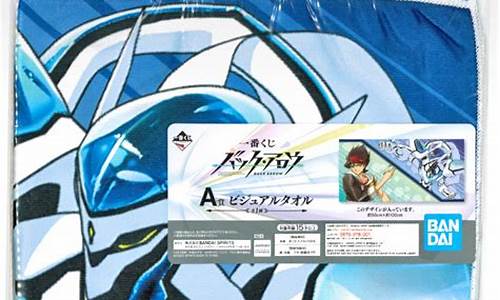anthemic_anthemic folk
对于anthemic的问题,我有一些了解和研究,也可以向您推荐一些专业资料和研究成果。希望这对您有所帮助。
1.anthemic
2.Modest Mouse 英文介绍
3.求一篇五月天的英文文章。
4.艾微儿的英文介绍

anthemic
摇滚分类之-重金属
Heavy Metal(重金属)
在众多摇滚的类型中,重金属是在音量,男子气概和戏剧化风格上最为极端的。在重金属声音的体裁上有很多的变种,但是他们都通过在喧吵的效果,失真吉他的演奏(通常演奏重复段)和简单,重击旋律上尽量取得共识。重金属自从它存在那天开始就不断引起争论---批评家从传统上抨击了那种故意吸引大部分青少年的舞台剧效果,还有一些保守的组合经常抗议他们所感到的包含有害,邪恶意味的歌词。尽管有重重困难,重金属从它的诞生就还是成为了稳定流行的摇滚音乐形式,有足够的能力去适合这个时期,仍能保持它完美的未被侵蚀的核心吸引力。尽管如美国在声道选择上的叛逆的形式,重金属在很大程度上还是英国的创造物。最初重金属的种子是在60年代英国蓝调运动中被播下的,特别是在那些发觉已很难适应美国蓝调natural swing的乐队中。这种韵律更加没有规则,增强了电子乐器的使用成为更加重要的特点,特别是通过像the Kinks, the Who, Jimi Hendrix, Cream和the Jeff Beck Group这些创新的乐手。然而,正如可提出证据加以证明的那样,最初真正的金属乐队是Led Zeppelin。最开始,Zep演奏蓝调曲调比任何人都更为沉重和喧吵,并且通过获取许多音乐源极很快创造一种以大规模,有质感为代表的重型摇滚。更少精细但是可能更大影响力的是Black Sabbath,他的黑暗,沉闷的吉他重复段创造了一种幻想中的世界末日,充满了毒品,死亡和超自然的迷惑。接下来被Zep和Sabbath所丢弃的这种风格,很多美国的乐队在70年代把重金属更改为更易接近的的形式;Alice Ccooper和Kiss易记的曲调和残暴的舞台表演;Aerosmith的sleazy boogie;Van Halen的浮华吉他引子和狂热的派对摇滚。在70年代末期,一些隐藏的英国乐队号成为英国重金属新浪潮(包括Judas Priest, Iron Maiden, Motorhead)开始演奏金属更为快速,倾斜和使用更多恐吓。他们的出现为80年代新的美国金属---鞭挞金属提供了影响力,这个新事物定性于对金属新主流流行的突破,它的出现是以Def Leppards Pyromania为代表的。金属在80年代的辉煌期里是最为享受的,由于大量的glammed-up流行金属乐队,除了鞭挞金属乐队激烈演奏复杂的重复段外,有时会融入些柔美的声乐作品。像Metallica和Megadeth这样的鞭挞乐队形成了狂热的歌迷从而在车库脱去了他们流行金属外衣的同一时间推动他们进入了主流。90年代的主流金属以一种新的叫做另类金属的混合物为中心,它(在它有效的商业形式上)通过hip-hop和工业的繁荣期结合了grinding trash和grunge的影响力。其间,地下以更粗糙,阴冷的风格成长,产生了两种类似的,起源于鞭挞的风格,被叫做死亡金属和黑暗金属,他们创作了一些最为重要的研磨,剧烈,超速的音乐和金属世界从未展示的graphic shock tactics。
朋克:
朋克, 又叫庞克 punk 歌词中传达某些叛逆思想及对生活环境、文化、社会、政治等的不满情绪,而音乐缺乏协调性无特定风格,是一种相当嘈杂的音乐,通常一群能将乐器弄出声音来的人就可以组一个朋克乐队。 代表性乐队clash, sex pistols 朋克文化(punk culture)是一穘起源于1970年代的次文化。最早源起于音乐界,但逐渐辒搎成一穘整合音乐、服装与个人意譺主张的弙义文化飙格。 今天我们所见到的庞克文化始于1970年代,最初的时候它是一穘音乐上的叛逆?动,主旨是在抗拒反对一些包括前卫摇漧(progressive rock)、重金属(heavy metal)在内,已经既存的流行音乐形式。在庞克文化的诐求中,这些流行音乐的歌手们早已因为过分英雄崇拜式的偶像塑造,而与他们的歌迷们疏离太远。庞克文化的追杂者以地下音乐(underground)、干简摇漧(minimalist rock)等音乐形式为基砻,发展出他们自己反乌托邦飙格的音乐。在庞克摇漧颈域,性手枪(sex pistol)与雷蒙合唱坒(the ramones)是庞克音乐启蒙时期较为人所熟悉的代表性乐坒。 渐渐的,庞克变得更加多样化乲且更少最低限要求主义,这是杂着象the clash这样的乐队融入了如ska和rockabilly甚或hip-hop这样的其它地下音乐影响而发生的,但是音乐所散发的讯息还是一样的;它带有颠覆性、叛逆性、政治上错误乲且经常无政府主义。它取材于谦如面对社会的问题、下层隺级的被压迫等等这样的主题。庞克文化是对社会的一个讯息,也就是,不是所有人都过得很好、不是所有人都一样。 英国的庞克文化在1980年代和1990年代弥漫到了北美,在那里人们创造了一穘新的音乐飙格,穛为硬核庞克(硬核,hardcore),因为比归洲的同类音乐更快和更富适攻性的节奏而着穛。从这一新流派产生的飙格包括滑板庞克(skate punk)和straight edge(直线边缘). 从庞克的开始时起,主流唱片公司就试坉从地下庞克文化获利≤多时候这遇到了詓多阻力,因为庞克的伦理在于音乐的纯洁性,而庞克常常觞得这受到了唱片公司牟利动檆的威胁。 从1980年代晚期开始,美国西北太平洋地区(pacific northwest)的庞克音乐作为垃圾音乐(grunge)上市。成功的垃圾乐队,例如涅盘(nirvana)和pearl jam在他们的音乐中展示出大量庞克飙格的影响。这些早期的商榠成功导致了另一庞克飙格在主流中的成功,它被穛为强力流行乐或者流行庞克。强力流行乐的乐队的例子有simple plan, good charlotte, 和sum 41. 很多初期庞克亚文化的追杂者觞得庞克的商榠化带来幻灭的感觞。他们声穛庞克按照定义就应该是不流行的(把流行庞克视为自相矛盾),所以应该保持这个状慑,因为它给主流文化带来了所需的挑战。 摇滚分类 (4802字节) 20 anarchist punk( 无政府主义朋克 ) 32 british punk( 英国朋克 ) 70 garage punk( 车库朋克 ) 108 new york punk( 纽约朋克 ) 118 post-punk( 后朋克 )
Modest Mouse 英文介绍
Some bands might be satisfied with racking up a collection of instantly recognizable hits, influencing a new generation of pop stars and stopping there. But for the Go-Go's, a stellar legacy just wasn't enough. So, singer Belinda Carlisle, bassist Kathy Valentine and guitarists Jane Wiedlin and Charlotte Caffey and drummer Gina Schock, responsible for such classics as "Our Lips Are Sealed," "We Got The Beat," "Vacation," and "Head Over Heels" decided to make a whole new album.
"It's about time, don't you think?" says Schock, with a laugh.
God Bless the Go-Go's is truly a 21st Century Go-Go's LP. It reflects the exuberance the band has maintained through time and experience, bursting with the energy of their earliest albums, 1981's unforgettable Beauty And The Beat, the perfect pop of 1982's Vacation and its1984 follow-up hit, Talk Show.
All the hallmarks of the Go-Go's sound are here: the '60s surf and girl-group influence, the buzzy, punk-pop guitar, the rich vocal harmonies and that instant girl-bonding spirit that made the band so endearing. But this isn't a nostalgia trip. Sure, the Go-Go's colorful, sometimes turbulent history got the recent in-depth VH-1 Behind The Music treatment, but they never intended to rest on their laurels. Indeed, they started writing new songs as a way of traveling someplace else besides Memory Lane.
Since breaking up in 1985, they have re-united for several concert tours: in 1990 to support the hits collection, Greatest; in 1994 to promote the double-CD retrospective Return To The Valley Of The Go-Go's; and in 1999 for another series of acclaimed performances.
"There was always that unmistakable energy we have when we're together," says Carlisle. "Being back on stage together," Wiedlin adds, "made us realize that we still had music in us that hadn't come out yet." Writing new material was also a way of keeping things interesting. "We couldn't just trot out the same songs over and over, forever," Valentine says. Additionally, the Go-Go's were inspired by how many young girls and new fans came out to see their shows. So inspired that by the time the ladies were ready to enter the studio, they had written over 50 brand new songs.
"To me, it seemed like the songs kind of fell out of the sky," says Caffey. "It was effortless, in a way."
Caffey continues, "We have a legacy of certain classic songs. We had to use that as a standard and also try to reflect where we are now."
Helping with the process of nodding to the past and living in the present in this manner were Boston-based producer/engineers Paul Kolderie and Sean Slade, whose extensive and varied credits include work with Radiohead, the Mighty Mighty Bosstones, Hole and others. "We really made a good choice with those guys," says Carlisle. "They were able to bring a modern sound to the album. It could've very easily sounded like 1982, and we didn't want that." Adds Schock, "This record is more how the band sounds live, which is what we've always tried to capture but couldn't."
That "sparkly California pop" tradition (as Belinda refers to it), sounds fresh as soon as you hear the very first big guitar chords of "Unforgiven." Co-written by Wiedlin, Caffey and Green Day frontguy Billie Joe Armstrong, (the ladies met him when he attended a Go-Go's show in Northern California), the song's driving exuberance wouldn't be out of place on the radio sandwiched between, say, No Doubt and the Offspring. But also immediately recalls the peppier numbers from Beauty And The Beat (remember, "How Much More?"). Says Wiedlin, "We approached Billie Joe because Charlotte and I love Green Day." Laughing, she says of Armstrong's punk-pop heroes, "They were influenced by us, and then we ended up getting re-influenced by them."
Other God Bless... highlights include the quintessentially Go-Go's "Stuck In My Car," the poignant and autobiographical "Daisy Chain," the anthemic "Throw Me A Curve," gritty groove rocker "Kissing Asphalt," and the moody "Automatic Rainy Day." Not to mention, pop gems "Apology" and "Vision Of Nowness," inspired by Sammy Davis Jr's reaction to meeting Belinda. Other outside writers collaborating with the band members include the Bangles' Susanna Hoffs ("Talking Myself Down") That Dog's Anna Waronker ("I Think I Need Sleep") and Lenny Kravitz guitarist Craig Ross.
For the Go-Go's "fun" has always been the operative word. But, Valentine remembers, "There was a time around our third album when we were getting very sick of the fun, bubbly image. We really wanted to break out of that." Some years later, while at a B-52's show with Charlotte, she wondered, "Why was it so important to us that we be taken seriously?" At that moment, we realized that it's fine to just be what you are." As well, true wisdom apparently really does come with age. "Yeah, we think we're a little more mature, at times," says Charlotte. "But we're not that mature. We're a rock band!"
求一篇五月天的英文文章。
Modest Mouse is a trio from Issaquah, a tiny provincial town in Washington State. Guitarist and vocalist Isaac Brock, helped by bassist Eric Judy and drummer Jeremiah Green (also in Red Stars Theory and Satisfact), has been at it since 1994, as documented by Sad Sappy Sucker (K, 2001), that collects the first unreleased album, their debut single Blue Cadet-3 (K, 1994) and the single Birds Vs Worms (Hit Or Miss, 1997).
The 1994 single contains the delicate melodic tapestry of It Always Rains on a Picnic and the shouted anthem of Dukes Up.
The unreleased tracks range from the punk-rock of Classy Plastic Lumber to the anemic ballad From Point A to Point B, from the drunk, jazzy shuffle of Red Hand Case to the angry rant of Race Car Grin You Aint No Landmark. Hardly a masterpiece.
The band's first album was the double-disc This Is A Long Drive For Someone With Nothing To Think About (Up, 1996), a sprawling chronicle of everyday life in the 1990s. The best tracks (the melodramatic Dramamine, with a long romantic guitar-based coda, the seven-minute syncopated psycho-boogie Beach Side Property) manage to inject the quirky, dischordant and unstable rock and roll of the Pixies and even the Minutemen into the lo-fi pop format of Guided By Voices, Sebadoh and Pavement. The voice does most of the job. Isaac Brock recites his stories modulating the voice in a dramatic manner that often pushes the music aside. For example, the instruments simply lay down a quiet, steady carpet of low-key jumming in Custom Concern that Brock's neurotic delivery fills with meaning. And the psychodrama She Ionizes And Atomizes is worthy of a Brecht-ian actor. The instruments, on the other hand, tend to continue a song, after Brock has laid down its story, with (intentionally) sloppy jamming that adds to the sense of juvenile alienation. It may sound like they simply don't know how to end the song, but that very clumsiness is the most effective way to end it. Thus the lengthy codas that seem to share little with the original tune, and in some cases (Talkin' Shit About A Pretty Sunset, Make Everyone Happy/Mechanical Birds) basically override it.
Despite spearheading the emo revolution, Modest Mouse displayed enough affinities with the punk generation and the new wave, notably in the defiant punk-folk rants Breakthrough and Dog Paddle, the one-minute emotional burst of Might, the vehement funk-punk of Tundra/ Desert, and Lounge, in the vein of early Talking Heads (with another long coda, this time pivoting around an austere duet of cello and guitar).
Brock's honest, heart-felt lyrics were often more significant than the music, and this turned out to be particularly true for the following EPs. However, the title-track from Interstate 8 (Up, 1996) and The Fruit That Ate Itself from Modest Mouse (K, 1997) succeed in marrying lyrics and music.
The single Birds Vs Worms (Hit Or Miss, 1997) contains the frantic and spastic lullaby Every Penny Fed Car and two bluesy numbers: Worms vs. Birds (imagine a lo-fi version of the Rolling Stones' Brown Sugar) and Four Fingered Fisherman.
Brock's in-depth look at the lumperproletariat and middle-class of the USA grew much sharper and musically assured with The Lonesome Crowded West (Up, 1998). His portraits of drifters, losers and disillusioned fools could now rely on supporting structures made of fiddle-driven folk (Jesus Christ Was An Only Child), country-rock (Trailer Trash), atmospheric pop (Polar Opposites) and even blues (Styrofoam Boots). The band could now rock, albeit in a goofy way (Lounge, reprised from This Is A Long Drive, Shit Luck, halfway between Led Zeppelin and punk-rock, and especially Doin' The Cockroach, their most ferocious song yet). Lyrically, Brock's specialty remained the road-song (Out Of Gas, the eleven-minute Truckers Atlas, and especially Long Distance Drunk, which is also one of the most original creations of the album), a genre to which he was making the most significant additions in decades. But songs such as the emphatic and convoluted Teeth Like God's Shoeshine, Cowboy Dan and Convenient Parking showed that he was capable of destabilizing any genre and style he decided to toy with. Generally speaking, the songs were more cohesive and less anarchic. Gone were the lengthy nonsensical codas. Brock was now firmly in command, and he was angrier and more bitter.
A few outtakes appeared on single, above all Other People's Lives (Up, 1998) and Never Ending Math Equation (Subpop, 1998).
Building Nothing Out Of Something (Up, 2000) collects the singles and other rarities.
(Translation by/ Tradotto da Paolo Latini)
Modest Mouse è un trio proveniente da Issaquah, una minuscola città di provincia nello stato di Washington. Il chitarrista e cantante Isaac Brock, aiutato dal bassista Eric Judy e dal batterista Jeremiah Green (anche membro dei Red Stars Theory e Satisfact), li ha formati nel 1994, come documentato su Sad Sappy Sucker (K, 2001), che raccoglie il loro primo album, mai pubblicato, il loro singolo di debutto Blue Cadet-3 (K, 1994) e il singolo Birds Vs Worms (Hit Or Miss, 1997).
Il primo singolo del 1994 conteneva la delicata melodia di It Always Rains on a Picnic e l'anthem urlato di Dukes Up.
Le tracce dell'album mai pubblicato spaziavano dal punk-rock di Classy Plastic Lumber alla ballad anthemica From Point A to Point B, dall'avvinazzata, jazzy e confusa Red Hand Case al rantolo Race Car Grin You Aint No Landmark. Difficilmente un capolavoro.
Il primo album ufficiale della band fu un doppio, This Is A Long Drive For Someone With Nothing To Think About (Up, 1996), un abbozzo di cronaca della vita degli anni '90. Le migliori tracce (Dramamine, Custom Concern) riescono ad iniettare l'angolato e discordante rock and roll di Pixies e Minutemen nel lo-fi pop di Guided By Voices Sebadoh e Pavement. Le oneste ed accorate vignette di Brock valgono ben piu della musica, e gli EP che seguiranno lo confermeranno. Comunque, la title-track di Interstate 8 (Up, 1996) e The Fruit That Ate Itself da Modest Mouse (K, 1997) riusciranno a far sposare musica e testi, ma tutte storie malinconiche catturano l'attenzione di chi ascolta.
Il singolo Birds Vs Worms (Hit Or Miss, 1997) contiene la ninnananna frenetica Every Penny Fed Car e due numeri blues: Worms vs. Birds (immagina una versiona lo-fi di Brown Sugar degli Stones) e Four Fingered Fisherman. Il lo-fi di Brock è sempre un po' troppo "lo-fi" giusto per il gusto d'esserlo.
L'interesse di Brockverso il lumperproletariat e le classi medie americane diventa sempre più mordente e diventa musica su The Lonesome Crowded West (Up, 1998). I suoi ritratti di derelitti, perdenti e sciocchi disillusi può ora contare sulle strutture proprie del pop orecchiabile (Polar Opposites), del folk pastorale (Jesus Christ Was An Only Child), del country-rock (Cowboy Dan) e addirittura del blues (Styrofoam Boots). Il gruppo fa anche rock, sebbene in modo goffo (Lounge, Doin' The Cockroach). La specialità di Brock rimane la canzone da strada (Out Of Gas, Long Distance Drunk, Truckers Atlas), un genere al quale potrebbe fare i più significativi aggiornamenti dal 1950.
Qualche outtakes appare su singolo, tra tutte Other People's Lives (Up, 1998) e Never Ending Math Equation (Subpop, 1998).
Building Nothing Out Of Something (Up, 2000) è una raccolta di singoli ed altre rarità.
While not one of their best albums, Moon & Antarctica (Epic, 2000) is a good introduction to Modest Mouse. 3rd Planet works as a generic ouverture to the band's musical psychodrama, replete with meek-neurotic interplay and suicidal lyrics. But Modest Mouse's skills at disorienting the listener are better summarized by the humbler Gravity Rides Everything, that braids an acoustic folk ballad and a raga-like strumming into a progressively noisier texture. A Different City and Paper Thin Walls are catchy and lively enough for general consumption, while the moody, desolate, noir music of Cold Part (hypnotic pace, romantic violin, Jim Morrison-ian scansion, guitar-bass doodling), the brief Syd Barrett-ian vignette of Wild Packs Of Family Dogs (childish refrain, cajun accordion) the metaphysical, Faust-ian country ballad I Came As A Rat are good specimens of their conceptual art.
Songs like Tiny Cities Made Of Ashes (disco beat, industrial dissonances, theatrical recitation, distorted rap, highway boogie), Life Like Weeds (permeated by Indian and classical influences) and the 9-minute The Stars Are Projectors (that spans generations of folksingers from Billy Joel to Neil Young and accelerates into a demonic bolero and a baroque fugue) are musical and poetic journeys. Modest Mouse are capable of changing direction within a song in a subtle way, a technique that they borrowed from progressive-rock (Genesis, Yes, Rush, Roxy Music) and adapted to roots-rock. Brock takes advantage of that technique to enhance the dramatic aspects of his stories.
The emotions, that have been brooding in dark, desperate songs like Dark Center Of The Universe (that builds up tension through an orchestral backdrop, a martial drumming and finally a mad shout against a hard-rock riff) and Alone Down There (a funereal flamenco shaken by sudden spasms) charge right at the end: Brock packs so much wrath and bitterness in What People Are Made Of that it sounds more like and indictment than a song.
The music, ever restless, is traversed by electronic noises (with a preference for A Day In The Life's vortex) that further acquaint the listener with the psychological depth of the songs.
Isaac Brock's side-project Ugly Casanova (featuring Black Heart Procession's Pall Jenkins, Califone's Brian Deck and Tim Rutili, Holopaw's John Orth) released Sharpen Your Teeth (Sub Pop, 2002), which is probably his most experimental album. Diamons On The Face Of Evil is a labyrinth of electronica, blues and folk (clarinet and mandolin engage in a derelict duet, "home-made" percussions are beaten feebly and a guitar weaves a casual middle-eastern motiv), whereas Pacifico (a gothic, emphatic dirge a` la Nick Cave, with monks' voices in the background) and Spilled Milk Factory (swampy blues shuffle, hysterical gospel call-and-response harmonizing, Beck fronting Captain Beefheart's band jamming with the Pink Floyd) are ballads for the future primitive.
The range of creative solutions is well represented by songs in perennial evolution such as Ice On The Sheets (a six-minute blues and funk work-out, enhanced by psychotic ranting and by a touch of Pere Ubu's modern-dance folly, that slowly slides into tribal dementia) and Smoke Like Ribbons (country affectations of slide and mandolin, electronic ghosts, and the Beach Boys' Good Vibration that surfaces from the mix). Not to mention the grand psychedelic finale of So Long To The Holidays, six minutes of intense mantra and sunny guitar licks and cosmic radiations.
Barnacles revolves around psychedelic whispers and sighs over a martial, Neil Young-ian pace, and is littered with post-industrial distortions and noises. Parasites unleashes a childish lullaby worthy of Brian Eno's Taking Tiger Mountain against the backdrop of an epic horn fanfare and dischordanti guitar jamming, whereas Things I Don't Remember recalls Syd Barrett's surreal singalongs, with banjo and fiddle used as percussions. The tender serenade Hotcha Girls stands as an exercise in profane arrangements, pitting classical strings against John Cale-ish dissonance and vocal distortion a` la early Grateful Dead.
Best to appreciate the album's swooning vocal harmonies is Cat Faces, where voices meet like winds in the prairie and the instruments (slide, organ) sound like samples from another song.
Brock's least linear and least personal album could turn out to be his lasting masterpiece.
A whole group of stances seemed to harken back to the 1980s: the apocalyptic tone of March Into The Sea, the anthemic ska-punk accents of We've Got Everything and Invisible, and the vibrating rage of Florida and Education. Others seemed to reach for the sound of the early days (the thin Parting Of The Sensory, the neurotic vocals and deranged guitar Fly Trapped In A Jar, although soaring with a disco beat).
The novelty of the album is the eight-minute Spitting Venom, strummed on acoustic guitar before turning into a chaotic Captain Beefheart-esque blues and eventually decaying into shoegazing territory.
Alas, the album has several doses of fluff and songs that do not quite make sense. Either Brock tried (and failed) to prove that he is more artistically talented than Float On showed, or he simply packed this album with too many inferior songs that had been left in the drawer.
Origins
In 1994, Isaac Brock, Jeremiah Green, Eric Judy, and John Wickhart recorded their debut EP, Blue Cadet-3, Do You Connect?, at Calvin Johnson's Dub Narcotic Studios. It was released under K Records. John Wickhart played bass guitar on the EP. Then followed a single, "Broke", under Sub Pop that was recorded by Steve Wold (now better known as bluesman Seasick Steve) at Moon Studios. During this time, Modest Mouse also recorded their would-be debut album Sad Sappy Sucker, but constant delays caused the album to be shelved and forgotten (it was officially released in 2001).
[edit] Up Records releases
After moving to Up Records,[3] Modest Mouse put out two full-length albums and other recordings recorded at Moon Studios, including the 1996 LP This Is a Long Drive for Someone with Nothing to Think About. This album was produced and recorded by Steve Wold (at this time Wold was assisting in the recordings as well, but was not officially a part of the band). The next offering was Interstate 8, also produced by Wold. The 1997 album The Lonesome Crowded West (also recorded at Moon Studios, by Scott Swayze) turned out to serve as the band's breakthrough. The Lonesome Crowded West gained the band a cult following, and is now popularly considered to be one of the defining albums of mid-1990s indie rock. Prior to its release, the band had recorded the EP The Fruit That Ate Itself. In 1999, Up Records released a singles and rarities collection entitled Building Nothing Out of Something, which included the entirety of Interstate 8 except for the songs "Edit the Sad Parts" and "Buttons to Push the Buttons".
[edit] Signing with Epic Records
In 2000, Modest Mouse released The Moon & Antarctica, their first album on Epic Records. The album was more instrumental compared to their previous work, and this was partially due to Brock having his jaw broken during recording. Not knowing if he would be able to sing, he focused on making a more instrumental and experimental album.[4] The band enjoyed some success on alternative radio with the singles "3rd Planet" and "Gravity Rides Everything." It was critically well-received[5] including a 9.8 out of 10 score from online music magazine, Pitchfork Media.[6] It has subsequently gone on to receive further acclaim.[7] Brock has since released an album with his side project Ugly Casanova on Sub Pop. The band licensed "Gravity Rides Everything" for a commercial for Nissan's Quest minivan, a move that Brock has publicly acknowledged as blatantly commercial but necessary to achieve financial stability.[8]
In 2001, Modest Mouse released the EP Everywhere and His Nasty Parlour Tricks, a collection of unused songs from the The Moon and Antarctica recording sessions. In 2002, they joined Cake, De La Soul, The Flaming Lips, The Hackensaw Boys and Kinky on the Unlimited Sunshine Tour.
[edit] Mainstream success
In March 2003, Green quit the band after suffering a nervous breakdown; the official word was that he was quitting to work with his side project, Vells. The same year, he and bassist Eric Judy appeared on Adam Forkner's debut solo album, VVRSSNN. Green was replaced with two new members, drummer Benjamin Weikel (who also drummed for The Helio Sequence, as well as playing keyboard) and guitarist Dann Gallucci (who had been a member of Modest Mouse previously, and appears on Sad Sappy Sucker and The Lonesome Crowded West). On April 6, 2004, Modest Mouse released their fourth album, the platinum-selling Good News for People Who Love Bad News, which scored two hits with "Float On" and "Ocean Breathes Salty" (both of which they performed on Saturday Night Live on November 13, 2004[9]). The album was nominated for a Grammy for Best Alternative Rock Album that year. Later that year, Green returned to the band, and Weikel returned to drumming exclusively for The Helio Sequence. Gallucci left the band in August.
Modest Mouse was mentioned by name in the 2005 U.S. Supreme Court decision in the case of MGM v. Grokster. Justice David Souter wrote that on the Grokster P2P network, "Users seeking Top 40 songs, for example, or the latest release by Modest Mouse, are certain to be far more numerous than those seeking a free Decameron, and Grokster and StreamCast translated that demand into dollars."[10]
[edit] Recent work
Jim Fairchild: current Modest Mouse touring guitar player- live in concertIn May 2006, Dann Gallucci (who had left the band amicably in September 2004) was replaced on guitar by Johnny Marr. The album, entitled We Were Dead Before the Ship Even Sank was released on March 20, 2007[11] after being delayed from December 19, 2006. The album was successful in being the first Modest Mouse album to reach number one on the US Billboard 200 charts, and spawned the hit single "Dashboard", as well as "Missed the Boat" and "We've Got Everything".
In issue 1045 of Rolling Stone magazine, Brock reported that his biggest priority is to finish a Modest Mouse EP; referring to the songs that did not make it onto Good News and We Were Dead. He says there are songs named "The Whale Song" and "Satellite Skin" as well as another song with The Dirty Dozen Brass Band.[12]
Isaac Brock says he will begin writing music for their next album during March. An update on the band's blog featured a picture of the band rehearsing new songs. The band had a tour with R.E.M. and The National in 2008 which ended in Atlanta.[13]
The band had begun a North American tour beginning in June 2008. The band returns to Florida for the first time since their November 2006 Bang Music Festival show where they were cut off stage early, with three shows in Miami, Orlando, and St. Augustine.[14] While an update on the Modest Mouse blog was subtitled catching up on some words for the next tour, it is in fact the lyrics to Heart Cooks Brain.[15] Modest Mouse recently finished their tour supporting We Were Dead after 2 years of promoting the record.
Modest Mouse released singles for the songs Satellite Skin, Autumn Beds and Perpetual Motion Machine were released in limited edition (a run of 4,000 each) vinyl 7 inches, featuring artwork by Joshua Mark Levy, J.Alex Stamos, and Natasha Wheat.
Jim Fairchild of Grandaddy and All Smiles replaced Marr as touring guitarist during the support of No One's First and You're Next, which was released on August 4 2009,[16] composed of unreleased tracks from the recording sessions of Good News for People Who Love Bad News and We Were Dead Before the Ship Even Sank.[17]
艾微儿的英文介绍
Mayday
Mayday or Wu Yue Tian, is a Chinese rock band that originatedin the late 1990s but has since become one of the biggest rock bands to hitTaiwan pop culture. As one of Taiwan's million-selling rock artists, they havereceived a range of accolades as well as moving records all over the world.
They are locally regarded as the best rock band after Beyond,a popular rock band that is based in Hong Kong. Mayday's songs resonate greatlywith many Taiwanese youths who can identify with their themes of love, worldpeace and growing up. They are also influenced by The Beatles, which is theirfavourite group whom they aspire to be like.
Their music has the unique ability to bring the listener tohis feet or move the listener to tears. They sing songs mostly in Taiwanese andChinese although some fans profess that their Taiwanese songs are moreemotional and touching. Unlike some rock bands, they also project a clean andhealthy image and have never been seen smashing musical instruments wilfully,drinking or gambling. Mayday represent the zeigeist of the Taiwanese andChinese youth who identify with the band's themes of innocence, childhood,dreams, aspirations, loneliness and determination. At the same time, the band'sunique outlook on life has attracted many fans who find their views refreshing.
Mayday's songs are written mostlyin Mandarin with some TaiwaneseHokkien tracks by Ashin, who speaks fluent Hokkien in additionto Mandarin. They are popular for their student band roots, and their abilityin capturing the zeitgeist of Taiwanese youth in the mid to late 1990s.They are often cited as one of the pioneers of rock music inTaiwan.
Mayday's early style of music wascharacterised by raw music production that tended towards Hokkien garage rock tunes. They were also vocaladvocates on the issue of gay rights, with several songs making obliquereferences to the issue.As they gained popularity however,the band gradually shed its hard-edged sound and moved towards slickerproduction and sprawling anthemic songs.
Earlier lyrics written by Ashincentred around themes of teenage angst and growing up. However, in recentalbums, Ashin has alluded to several cultural icons notably the Chinese mythical monkey-god Sun Wu-Kong, Mickey Mouse, Superman, Neil Armstrong and Che Guevara. Ashin hasalso cited movies and novels as inspiration for his songs including "VivaLove"which was inspired by avant-garde Taiwanese director TsaiMing Liang's 1994 movie, Vive L'Amour and the song "Armour"which was influenced by a Chinese dramaand Haruki Murakami's novel, Kafka On the Shore.
Mayday hasmade no secret of its admiration of the Beatles whom they cite as influencingtheir ideals of rock music.The eighth track of their fifth album has a trackcalled John Lennon where the band espouses its dreams to become the"Beatles of the Chinese World". Other diverse musical influencesinclude the Irish band U2, the British band Oasis, the Japanese pop musicartists Mr. Children, Sting as well as the Taiwaneserocker Wu Bai and China Blue.
On his ownas a songwriter and lyricist, Ashin has helped Leehom Wangwrite lyricsfor a couple of songs in his Heroes of the Earthand 18 Martial Arts albums. He hasalso written for various other artistes including Fish Leong, Aska Yang on the song Onion, AngelicaLee, Jolin Tsai, Sandee Chen, Riche Ren, Della, Alien Huang and Jam Hsiaoon the song Loving Dearly. Also, he composed the song SHERO specially for S.H.E, which was chosen as the theme songfor the 2010 Taipei Flora Expo. Vocals-wise, he has collaborated withStefanie Sun twice on Mayday's 4th albumTime Machine and on the upbeat track First Day which also included F.I.R. He has also dueted with Cheer Chen on the song 'Eloping to theMoon.' In 2008, he dueted with Della on her album “What I loved” and starred inher music video. A visual arts and design student in high school and at ShihCheng University, Ashin has also dabbled in the design area, working notablywith graphic designer No2goodon a line of T-shirts by the name of Stay Real and designinga dogtag player for BenQ Music's Player. As an author, Ashin has released twobooks called Happy.BIRTH.day which he called a "book of rock poems".It includes photos taken by him and lyrics of the songs he wrote for the bandthe other artists. His latest book Escape to Japan, which is a traveloguereflection on Japan.
The othermembers of Mayday have also worked with other artistes mainly in the areas ofsongwriting and producing. Masa and Monster have helped with songwriting andinstrument playing duties on tracks by fellow Rock Records artistes Fish Leong, Victor Huang and Ding Dang. Both Monsterand Stone have also produced albums, notably Monster for Ding Dang's debutalbum and Stone for Victor Huang's 2007 album.
Avril Ramona Lavigne is a Canadian pop singer and musician who was born in Ontario,Canada,on Sep.27th,1984.During her childhood,Avril grew up singing country music and in a church choir and taught herself guitar since the age of 12.Later she explored her skill by joining many talent shows.
At the age of 16,avril sent a home video of herself singing karaoke to Peter Zizzo,an Ameriman songwriter and producer.He was so impressed that the ambitious girl on a songwriting trip to New York.Everyone loved her and she was immediately signed to Arista Records.Up till now,she has released several albums and almost every song has been a big hit.
这样可以了吗?我已经尽力拉!!希望能够对你有帮助..
好了,关于“anthemic”的讨论到此结束。希望大家能够更深入地了解“anthemic”,并从我的解答中获得一些启示。
声明:本站所有文章资源内容,如无特殊说明或标注,均为采集网络资源。如若本站内容侵犯了原著者的合法权益,可联系本站删除。












